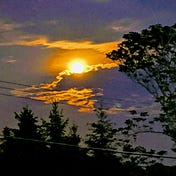
Not Housebroken
Highly educated old fart screaming into the void about mostly politics from a vegetarian ecofeminist, critical theoretical, and radical left perspective
By subscribing, I agree to Substack’s Terms of Use and acknowledge its Information Collection Notice and Privacy Policy